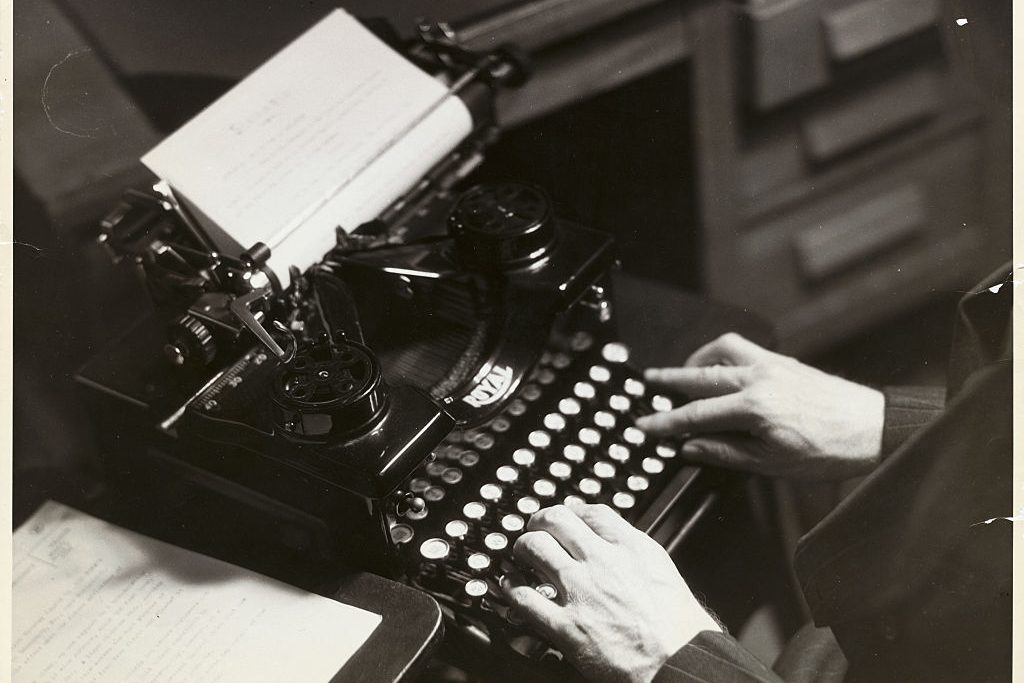“I begin to see the outlines of a scene, so I open my computer and start revising, growing it into what I think he intended it to be. This is the job of a ghostwriter, and I’m going to do it with fidelity.” If Julie Clark is clear about anything in The Ghostwriter, her gripping fifth novel, it’s the magnetic power of narrative – particularly when filtered through layers of secrecy, memory, and artifice. Clark, a New York Times bestselling author, has a flair for sleek, psychological crime fiction and delivers a taut and addictive story that is both clever and compulsively readable.
The novel rides the current wave of public fascination with ghostwriting, a profession that perhaps reached its cultural peak – or nadir – with 2023’s Spare, Prince Harry’s memoir, which was ghostwritten by J.R. Moehringer. (You may recall the now-immortal line: “My penis was oscillating between extremely sensitive and borderline traumatized.” Good prose? Maybe not. But it was certainly lucrative.)
Moehringer, a Pulitzer Prize-winner with a distinguished résumé of his own, is the exception. Most ghostwriters live in the margins, expertly impersonating the voices of others while remaining largely invisible. That invisibility is precisely what Clark chooses to subvert. The Ghostwriter isn’t just a thriller about a woman writing a book – it’s about the act of authorship and the murky boundaries between invention and truth.
The plot centers on Olivia Dumont, a once-successful ghostwriter and the estranged daughter of the horror writer Vincent Taylor. Following a very public (and costly) spat with a male literary rival, Olivia is forced to take the one job she swore she never would: writing her father’s memoir. There are just two problems. First, Vincent is suffering from Lewy body dementia, his memories fractured and unreliable. Second, he was the prime suspect in the murder of his own siblings back in the 1970s, a crime that fractured Olivia’s family and sent her fleeing into anonymity, changed surname and all.
Clark’s prose is brisk, emotionally astute and rarely overwrought
What follows is a cleverly layered narrative in which Olivia begins constructing the memoir using scraps of memory, family lore and long-buried clues, among them Super 8 footage recorded by one of the murder victims. The story takes shape as she imagines the voices of her young aunt Poppy and her father as a boy, giving readers a story within the story. These fictionalized accounts shift and evolve as new information surfaces, a device that could easily feel overworked but in Clark’s hands remains agile and effective.
Olivia reflects, early on, “I know how my father likes to tell a story – slowly, rolling out the surprises one delicious twist at a time.” It’s also how Clark tells a story. Her use of multiple perspectives could risk confusion in a lesser writer’s hands, but instead it enhances the suspense. She leads us confidently down one narrative path only to flip the entire frame in the final chapters. It’s an exercise in well-executed metafiction, full of satisfying misdirection.
But for all its psychological sophistication, The Ghostwriter stumbles with its regrettably predictable subplot. Olivia’s career implosion stems from an encounter with a smug, misogynistic literary lion, John Calder, who ambushes her on a panel discussion and sends her professional life into a tailspin.
John Calder is also the name of a successful real-life British writer and publisher, and it’s unclear whether Clark has chosen to make a point about a literary colleague – or rival – of hers. Either way, it’s cack-handed.
We’re told Calder is a titan of the industry. Unfortunately, he’s also a boilerplate villain whose inclusion feels more like a narrative obligation than a creative choice. In a novel otherwise rich with nuance, Calder’s cartoonish sexism is a bum note, made more frustrating by the fact that Olivia is such a well-drawn character – resilient, self-aware, and unrelentingly curious. The book could easily have done without him.
Still, this is a minor quibble with an otherwise enthralling novel. Clark’s prose is brisk, emotionally astute and rarely overwrought. She threads themes of trauma, identity and literary ethics into a page-turning narrative with precision, insight and wit.
“I love the anonymity of ghostwriting,” Olivia muses. “The ability to slip into someone else’s skin and inhabit their life just long enough to tell a good story.” Clark, too, seems to inhabit her characters with uncanny ease, making them complex, fallible and believably human.
By its surprising and satisfying conclusion, The Ghostwriter succeeds both as a gripping mystery and a sly commentary on the art of storytelling itself.
In crafting this layered, twisty tale of buried secrets and haunted characters, Clark proves she’s far from a ghostwriter herself. In fact, she’s a writer whose name is well worth remembering.
This article was originally published in The Spectator’s September 15, 2025 World edition.


























Leave a Reply